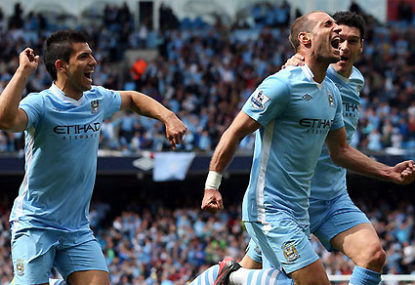Liverpool strike verbal deal to Slot in Dutchman as new boss with Klopp's seal of approval
Liverpool have reached a verbal agreement with Feyenoord for their head coach Arne Slot to succeed Jurgen Klopp at the end of the season.…

With most teams playing nine games in December’s 31 days, the Premier League alone sets alight club football across the planet.
Already the most watched league, the Premier League shows why it is so, by displaying football matches for the masses during the festive season.
It continually provides its audience with what they want when they want. The holidays bring with it a lot of free time for the fans and as a result the Premier league takes advantage of that and fits in as many games as they can, with some teams only having 48 hours to recover from games.
The result is usually brilliant; the recent Arsenal versus Chelsea and Manchester City versus Liverpool were thrilling games available for the whole world to watch in a great time slot.
While leagues all throughout Europe enjoyed a winter break, leagues across all levels in England are met with their most profitable and crucial period of the season financially.
Put simply, much of the lower end clubs rely on the attendance the festive season provide, with much of their supporters able and willing to attend matches and spend on the ground during this time.
It’s the classic issue of players versus owners. In this case, the owners and the FA act on behalf of the fans, who want to see their heroes on the pitch during their down time to entertain them.
The money generated from ticket sales and television, along with the close proximity of games make it the most profitable period of the season.
On the other hand, players and management staff are supportive of a winter break simply because of the physical consequence it plays on the health of the players.
Most Premier League title runs, especially in the last decade, were won and lost during December, which injuries and fatigue play a crucial part in.
Ryan Giggs, who has played every season of the Premier League, recently made a comment, “I think I would like a winter break, it doesn’t really need to be over Christmas,” Giggs told MUTV.
“I think it could just be in January, maybe when you get a couple of weeks off so you can get to go away, maybe get some sun, and then have a week’s training before getting back into the games. I don’t think it is a lot to ask for.
“But TV is huge over the festive period and obviously all of the stadiums are full.
But it does have an effect on the national team. If you have a winter break then it definitely helps you.
“And going into the Champions League as well, you have had a little week’s rest and it definitely helps you.
“I have benefitted from that in October and November, getting a few days off in the international breaks. It does help you and you do feel refreshed.”
He mentions the effect it could have for English clubs in the Champions League. Though as the last decade has shown, English clubs have proven that they can still perform without a break with their strong presence in semi-finals and finals, but of course, the injuries do still take their toll.
For clubs, this is the time of year where the depth of the squad plays a crucial part.
Recent trends will show the split in the table begins after Christmas, as the wealthier clubs that boast a larger squad find it easier to manage with this period and the lesser teams will then start drifting off the pace.
Another issue for players and managers to encounter are the conditions – snow, ice and rain all contribute to unsafe pitch conditions, though with state of the art pitch heating most clubs now have, it’s difficult to support the weather as an argument.
The only people uncomfortable would be the fans in the stands but high attendances prove the cold does not bother them.
This British tradition does not appear like ending anytime soon, with thrilling games along with great attendance proving this tradition continues to stay strong.
Most will argue the mammoth amounts of money these professionals get paid silence any of their reasons for complaint.
Players will debate the short turnaround time for games takes a major physical toll on their bodies and they lack quality time with their families.
But in the end they are indeed professionals and this is the toughest and best football league in the world.
The players and their managers simply need to just accept this and perform for their clubs and, most importantly, for their fans.